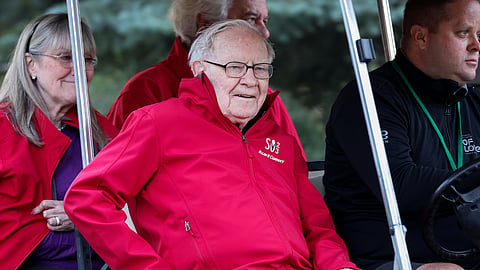Global Investing
FT: Buffett’s Berkshire ditches Apple; sells $166bn in stocks; builds record cash reserve
Berkshire’s stock-selling spree extends for eighth quarter, with $166bn dumped over the period
Warren Buffett's Berkshire Hathaway has sold $166 billion in stocks over eight consecutive quarters, significantly reducing holdings in Apple and Bank of America. With limited appealing investments in the U.S. market, Buffett has reinvested proceeds into short-term Treasury bills, raising Berkshire's cash reserves to a record $325.2 billion.
Sign up for your early morning brew of the BizNews Insider to keep you up to speed with the content that matters. The newsletter will land in your inbox at 5:30am weekdays. Register here.
By Eric Platt
Berkshire's stock-selling spree extends for eighth quarter, with $166bn dumped over the period
___STEADY_PAYWALL___

